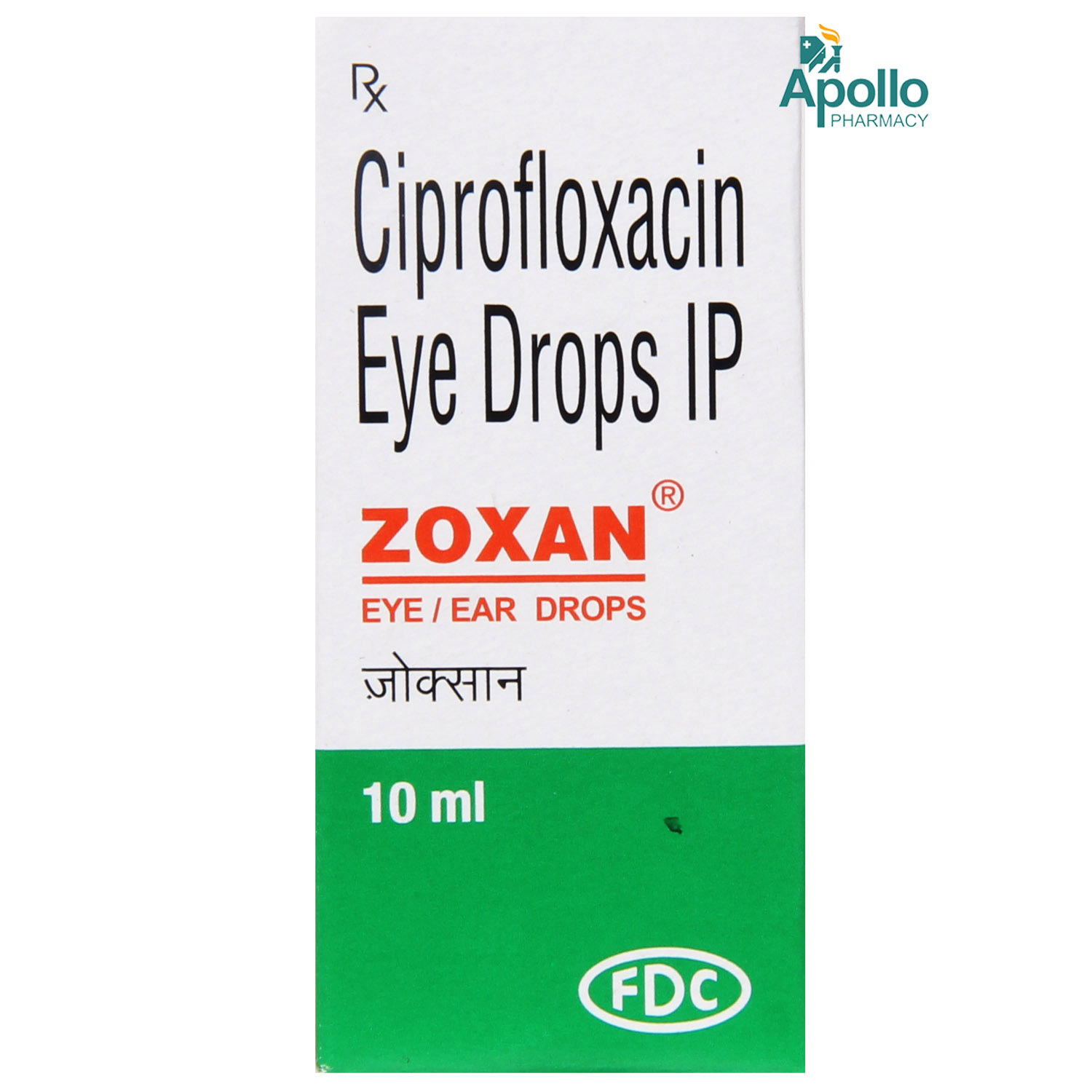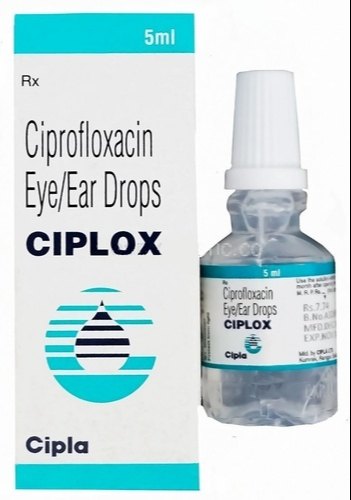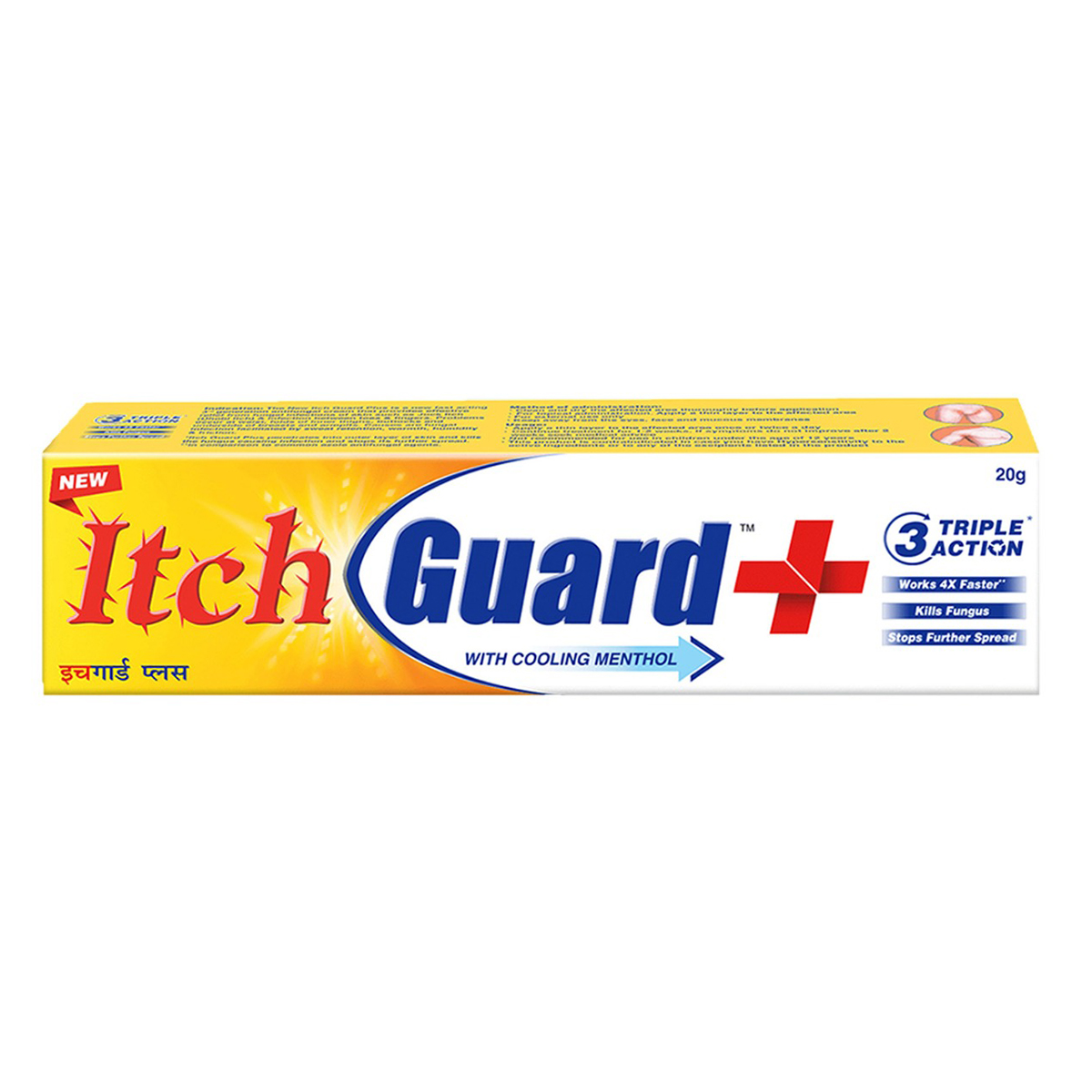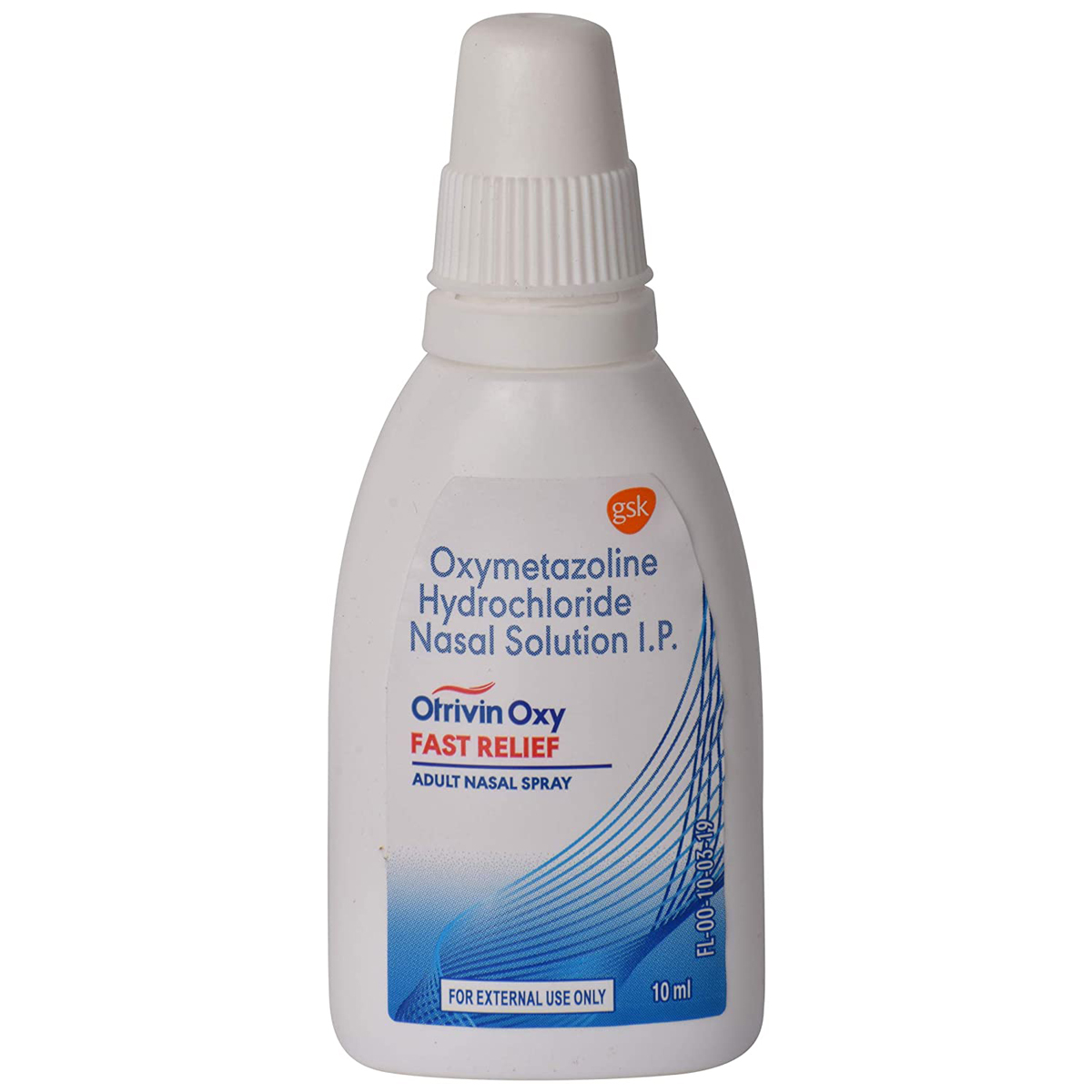Cifran Eye/Ear Drops

MRP ₹16
(Inclusive of all Taxes)
₹2.4 Cashback (15%)
know your delivery time
Provide Delivery Location
Composition :
Manufacturer/Marketer :
Consume Type :
Expires on or after :
Return Policy :

Secure Payment

Trusted by 8 Crore Indians

Genuine Products
Therapeutic Class
Country of origin
Manufacturer/Marketer address
Author Details
We provide you with authentic, trustworthy and relevant information
FAQs
Cifran Eye/Ear Drops works by killing the infection-causing bacteria. Thus Cifran Eye/Ear Drops treats corneal ulcers and bacterial conjunctivitis.
Cifran Eye/Ear Drops can be used with other eye medications if prescribed by a doctor. However, maintain a gap of 15-minutes between Cifran Eye/Ear Drops and other eye medicines.
Even if your symptoms improve, you must continue to use Cifran Eye/Ear Drops as suggested by your doctor. Do not stop using Cifran Eye/Ear Drops without consulting your doctor.
Do not wear contact lenses while using Cifran Eye/Ear Drops. Remember to remove the contact lenses before using Cifran Eye/Ear Drops. It is advised to wear spectacles and avoid contact lenses until the infection is cleared.
You should not use Cifran Eye/Ear Drops for more than 21 days unless your doctor instructs you otherwise. Please reach out to the doctor if your symptoms do not improve or if it becomes worse.
Disclaimer
Alcohol
Safe if prescribed
It is not known if alcohol affects Cifran Eye/Ear Drops. However, it is advisable not to take or limit alcohol as a precautionary measure.
Pregnancy
Consult your doctor
Consult your doctor if you are pregnant or planning for pregnancy.
Breast Feeding
Consult your doctor
Consult your doctor if you are breastfeeding. Caution should be exercised when Cifran Eye/Ear Drops is administered to nursing mothers.
Driving
Safe if prescribed
Cifran Eye/Ear Drops may temporarily blur your vision. Before driving or operating any machinery, wait until your vision has returned to normal.
Liver
Consult your doctor
Limited information is available about the usage of Cifran Eye/Ear Drops in patients with liver disease. Please consult your physician.
Kidney
Consult your doctor
Limited information is available about the usage of Cifran Eye/Ear Drops in patients with kidney disease. Please consult your physician.
Children
Safe if prescribed
Cifran Eye/Ear Drops is not recommended for use in children less than 1 year of age unless directed by your doctor.
Product Substitutes
About Cifran Eye/Ear Drops
Cifran Eye/Ear Drops belongs to the class of medicines known as fluoroquinolone antibiotics used to treat corneal ulcers and bacterial conjunctivitis. A corneal ulcer is an open lesion on the cornea (clear tissue at the front of the eye). Conjunctivitis (pink eye) is the inflammation or infection of the conjunctiva (white part of the eye) and the inner eyelid.
Cifran Eye/Ear Drops contains Ciprofloxacin which works by killing the infection-causing bacteria. Thus Cifran Eye/Ear Drops treats bacterial eye infections and corneal ulcers.
Use Cifran Eye/Ear Drops as advised by the doctor. Stinging or burning sensation, gritty feeling in the eye, irritation, white deposits on the eye surface (cornea), and redness are common side effects of Cifran Eye/Ear Drops. The majority of these side effects fade with time without the need for medical intervention. However, if you experience these side effects on a regular basis, you should visit your doctor.
Cifran Eye/Ear Drops is intended for use in the eyes; do not inject or consume. You should not use Cifran Eye/Ear Drops if you are allergic to ciprofloxacin, other quinolone antibiotics, or any of the components in Cifran Eye/Ear Drops. Notify your doctor if you are pregnant or breastfeeding. Cifran Eye/Ear Drops may cause temporary blurred vision. Before operating machinery or driving, wait until your vision returns to normal.
Uses of Cifran Eye/Ear Drops
Medicinal Benefits Mweb
Key Benefits
Cifran Eye/Ear Drops contains Ciprofloxacin, which is an antibiotic (quinolone class). It works by killing the infection-causing bacteria. Thus Cifran Eye/Ear Drops treats corneal ulcers and bacterial conjunctivitis.
Directions for Use
Side Effects of Cifran Eye/Ear Drops
- Itching
- Burning sensation
- Stinging sensation
- Gritty feeling in the eye
- Irritation
- Blurred vision
- White deposits on the eye surface (cornea)
- Redness
Drug Warnings
Do not use Cifran Eye/Ear Drops if you are allergic to any of its components. If you are pregnant, planning for pregnancy or breastfeeding, notify your doctor. You may notice temporary blurred vision after using this medication. Before operating machinery or driving, wait until your vision returns to normal. Before using Cifran Eye/Ear Drops, consult your doctor if you have vision problems, severe eye pain, glaucoma (high blood pressure in the eye), eye damage, or eye surgery. Cifran Eye/Ear Drops should not be used for any longer than your doctor has prescribed. Cifran Eye/Ear Drops should not be used to treat any other eye infections.
Drug-Drug Interactions
Drug-Drug Interactions
Login/Sign Up
Taking Amiodarone and Cifran Eye/Ear Drops 10 ml may significantly increase the risk of an abnormal heart rhythm.
How to manage the interaction:
Taking Amiodarone with Cifran Eye/Ear Drops 10 ml is not recommended, it can be taken together if prescribed by a doctor. However, consult your doctor if you experience sudden dizziness, lightheadedness, fainting, shortness of breath. Do not discontinue any medications without consulting a doctor.
Coadministration of Cifran Eye/Ear Drops 10 ml and Tizanidine together can increase the risk of side effects.
How to manage the interaction:
Using Cifran Eye/Ear Drops 10 ml and Tizanidine together is avoided, as it can result in an interaction, it can be taken if your doctor has advised it. However, if you experience drowsiness, weakness, sweating, or palpitations contact the doctor immediately. Do not discontinue any medications without consulting the doctor.
When Dronedarone is taken with Cifran Eye/Ear Drops 10 ml, it can increase the chance of a serious abnormal heart rhythm. If you suffer from any cardiac conditions, or electrolyte disturbances (such as magnesium or potassium deficiency brought on by severe or prolonged diarrhea or vomiting), you may be at higher risk.
How to manage the interaction:
Taking Cifran Eye/Ear Drops 10 ml with Dronedarone is not recommended, it can be taken if prescribed by the doctor. However, if you experience sudden dizziness, lightheadedness, fainting, breathing difficulty, or rapid heartbeat, consult the doctor immediately. Do not stop any medications without a doctor's advice.
Coadministration of sotalol together with Cifran Eye/Ear Drops 10 ml can increase the risk or severity of irregular heart rhythm.
How to manage the interaction:
Taking Sotalol with Cifran Eye/Ear Drops 10 ml is generally avoided as it can result in an interaction, it can be taken together if prescribed by a doctor. However, consult the doctor if you experience sudden dizziness, lightheadedness, fainting, breathing difficulty. Do not discontinue any medications without consulting a doctor.
Using Cifran Eye/Ear Drops 10 ml with Halofantrine can increase the chance of a serious abnormal heart rhythm. If you suffer from any cardiac conditions, or electrolyte disturbances (such as magnesium or potassium deficiency brought on by severe or prolonged diarrhea or vomiting), you may be at higher risk.
How to manage the interaction:
Taking Cifran Eye/Ear Drops 10 ml with Halofantrine is not recommended, it can be taken if prescribed by the doctor. However, if you experience sudden dizziness, lightheadedness, fainting, breathing difficulty, or rapid heartbeat, consult the doctor immediately. Do not stop any medications without a doctor's advice.
Combining Cifran Eye/Ear Drops 10 ml with Thioridazine can increase the chance of a serious abnormal heart rhythm. If you suffer from any cardiac conditions, or electrolyte disturbances (such as magnesium or potassium deficiency brought on by severe or prolonged diarrhea or vomiting), you may be at higher risk.
How to manage the interaction:
Taking Cifran Eye/Ear Drops 10 ml with Thioridazine is not recommended, it can be taken if prescribed by the doctor. However, if you experience sudden dizziness, lightheadedness, fainting, breathing difficulty, or rapid heartbeat, consult the doctor immediately. Do not stop any medications without a doctor's advice.
When Cifran Eye/Ear Drops 10 ml is taken with Quinidine, it can increase the chance of a serious abnormal heart rhythm.
How to manage the interaction:
Taking Cifran Eye/Ear Drops 10 ml with Quinidine is not recommended, it can be taken if prescribed by the doctor. However, if you experience sudden dizziness, lightheadedness, fainting, breathing difficulty, or rapid heartbeat, consult the doctor immediately. Do not stop any medications without a doctor's advice.
Using Cifran Eye/Ear Drops 10 ml with Procainamide can increase the chance of a serious abnormal heart rhythm.
How to manage the interaction:
Taking Cifran Eye/Ear Drops 10 ml with Procainamide is not recommended, it can be taken if prescribed by the doctor. However, if you experience sudden dizziness, lightheadedness, fainting, breathing difficulty, or rapid heartbeat, consult the doctor immediately. Do not stop any medications without a doctor's advice.
When Cifran Eye/Ear Drops 10 ml is taken with Pimozide, it can increase the chance of a serious abnormal heart rhythm. If you suffer from any cardiac conditions, or electrolyte disturbances (such as magnesium or potassium deficiency brought on by severe or prolonged diarrhea or vomiting), you may be at higher risk.
How to manage the interaction:
Taking Cifran Eye/Ear Drops 10 ml with Pimozide is not recommended, it can be taken if prescribed by the doctor. However, if you experience sudden dizziness, lightheadedness, fainting, breathing difficulty, or rapid heartbeat, consult the doctor immediately. Do not stop any medications without a doctor's advice.
Using Cifran Eye/Ear Drops 10 ml with Mesoridazine can increase the chance of a serious abnormal heart rhythm. If you suffer from any cardiac conditions, or electrolyte disturbances (such as magnesium or potassium deficiency brought on by severe or prolonged diarrhea or vomiting), you may be at higher risk.
How to manage the interaction:
Taking Cifran Eye/Ear Drops 10 ml with Mesoridazine is not recommended, it can be taken if prescribed by the doctor. However, if you experience sudden dizziness, lightheadedness, fainting, breathing difficulty, or rapid heartbeat, consult the doctor immediately. Do not stop any medications without a doctor's advice.
Drug-Food Interactions
Drug-Food Interactions
Login/Sign Up
Drug-Diseases Interactions
Drug-Diseases Interactions
Login/Sign Up
Habit Forming
Diet & Lifestyle Advise
- To naturally renew your eyes, get at least six to eight hours of sleep each night.
- Wash your eyes with clean water. If you have had eye surgery, wait at least two weeks before washing your eyes.
- Take care of your health, eat a balanced diet, do regular exercise, and rest well.
- Hydrate well-drink lots of water.
- Wash your hands regularly, avoid touching eyes with dirty hands.
All Substitutes & Brand Comparisons
RX
Out of StockCipropen Eye/Ear Drops
Morepen Laboratories Ltd
₹7.35
(₹0.66/ 1ml)
54% CHEAPERRX
Out of StockCeepro Eye/Ear Drops
Lincoln Pharmaceuticals Ltd
₹7.5
(₹0.68/ 1ml)
52% CHEAPERRX
Out of StockC Flox Eye/Ear Drops
₹5
(₹0.9/ 1ml)
37% CHEAPER

Have a query?
Buy best Infections & Infestation products by
Cipla Ltd
Macleods Pharmaceuticals Ltd
Alkem Laboratories Ltd
Lupin Ltd
Abbott India Ltd
Sun Pharmaceutical Industries Ltd
Mankind Pharma Pvt Ltd
Micro Labs Ltd
Aristo Pharmaceuticals Pvt Ltd
FDC Ltd
Intas Pharmaceuticals Ltd
Glenmark Pharmaceuticals Ltd
Ipca Laboratories Ltd
Torrent Pharmaceuticals Ltd
Zydus Healthcare Ltd
Biochem Pharmaceutical Industries Ltd
Zuventus Healthcare Ltd
United Biotech Pvt Ltd
Hetero Drugs Ltd
Emcure Pharmaceuticals Ltd
Alembic Pharmaceuticals Ltd
Indoco Remedies Ltd
Fusion Health Care Pvt Ltd
Dr Reddy's Laboratories Ltd
Leeford Healthcare Ltd
Cadila Healthcare Ltd
Wockhardt Ltd
Zydus Cadila
GlaxoSmithKline Pharmaceuticals Ltd
Morepen Laboratories Ltd
Blue Cross Laboratories Pvt Ltd
Cadila Pharmaceuticals Ltd
Converge Biotech Pvt Ltd
Elder Pharmaceuticals Ltd
Hetero Healthcare Pvt Ltd
Pfizer Ltd
AAA Pharma Trade Pvt Ltd
Gufic Bioscience Ltd
Mylan Pharmaceuticals Pvt Ltd
Corona Remedies Pvt Ltd
Wallace Pharmaceuticals Pvt Ltd
Apex Laboratories Pvt Ltd
Medishri Healthcare Pvt Ltd
Akumentis Healthcare Ltd
Alniche Life Sciences Pvt Ltd
Hegde & Hegde Pharmaceutica Llp
Veritaz Healthcare Ltd
Ranbaxy Laboratories Ltd
Koye Pharmaceuticals Pvt Ltd
Shreya Life Sciences Pvt Ltd
Overseas Health Care Pvt Ltd
Biocon Ltd
Indchemie Health Specialities Pvt Ltd
Medley Pharmaceuticals Ltd
Brinton Pharmaceuticals Ltd
J B Chemicals & Pharmaceuticals Ltd
Unifaith Biotech Pvt Ltd
Ajanta Pharma Ltd
Biochemix Health Care Pvt Ltd
Natco Pharma Ltd
Samarth Life Sciences Pvt Ltd
Unichem International
Laborate Pharmaceuticals India Ltd
Unipark Biotech Pvt Ltd
Zymes Bioscience Pvt Ltd
Indiabulls Pharmaceuticals Pvt Ltd
Neon Laboratories Ltd
Vasu Organics Pvt Ltd
DR Johns Lab Pharma Pvt Ltd
East West Pharma India Pvt Ltd
La Renon Healthcare Pvt Ltd
Medgen Drugs And Laboratories Pvt Ltd
Novartis India Ltd
Canixa Life Sciences Pvt Ltd
Icarus Health Care Pvt Ltd
Lincoln Pharmaceuticals Ltd
Celon Laboratories Pvt Ltd
Concept Pharmaceuticals Ltd
Klm Laboratories Pvt Ltd
Nicholas Piramal India Ltd
Systopic Laboratories Pvt Ltd
Yuventis Pharmaceuticals
Capital Pharma
German Remedies Ltd
Pristine Pearl Pharma Pvt Ltd
Unison Pharmaceuticals Pvt Ltd
Aurz Pharmaceutical Pvt Ltd
Clover Health Care Pharma
Kepler Healthcare Pvt Ltd
Allites Life Sciences Pvt Ltd
Auspharma Pvt Ltd
Intra Life Pvt Ltd
Jolly Healthcare
Linux Laboratories Pvt Ltd
Ozone Pharmaceuticals Ltd
Cachet Pharmaceuticals Pvt Ltd
Comed Chemicals Ltd
Delcure Life Sciences Ltd
Fresenius Kabi India Pvt Ltd
Khandelwal Laboratories Pvt Ltd
Frequently Bought Together
₹101.1
MRP ₹121.5
17% off
1
+Customers Also Bought


_0.jpg?tr=q-85)











